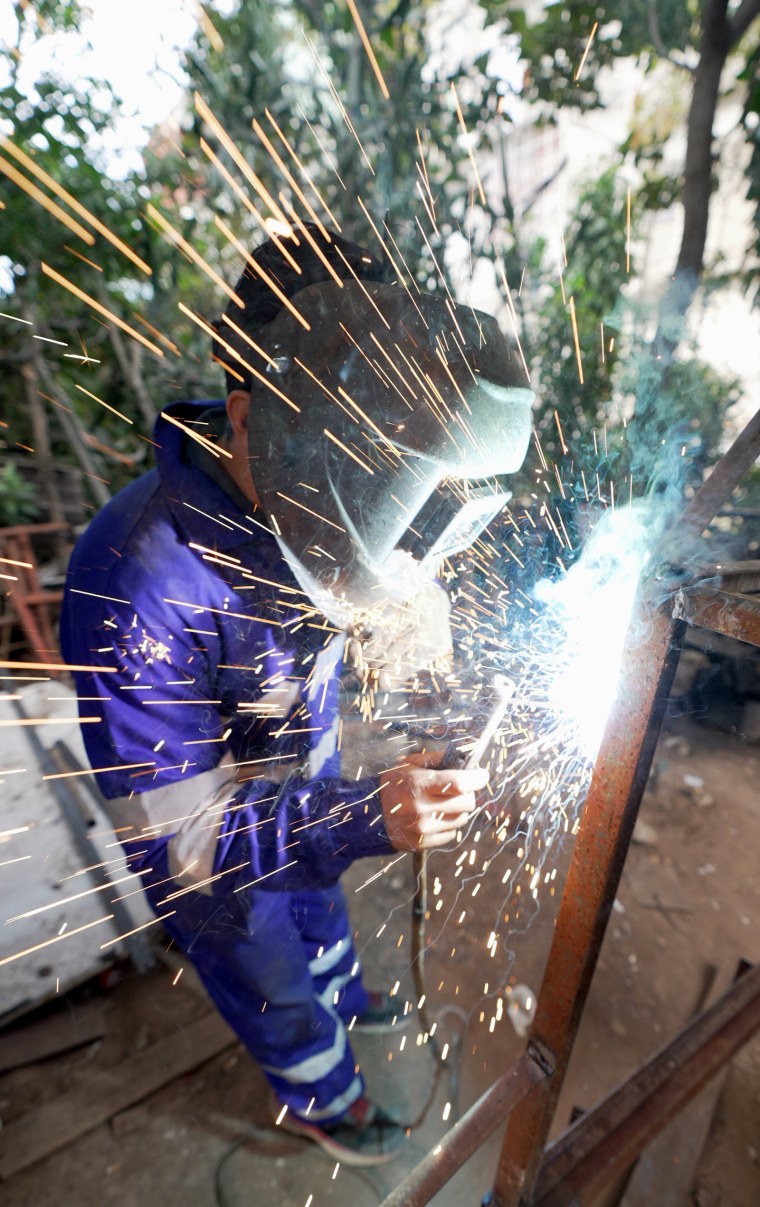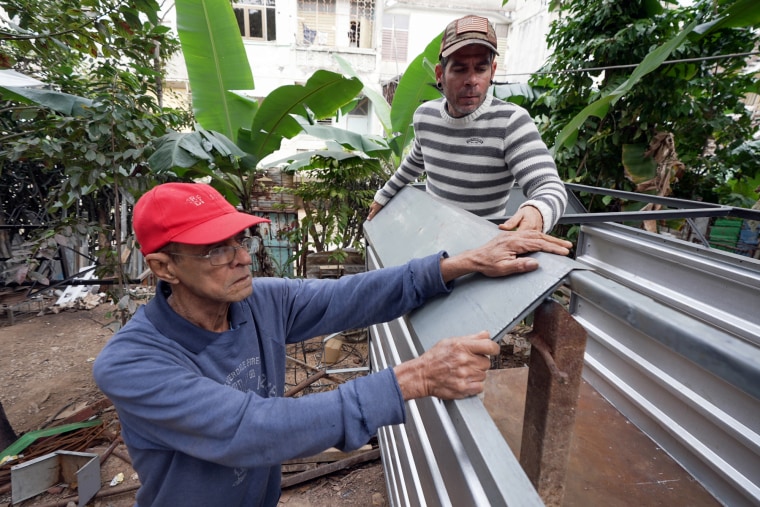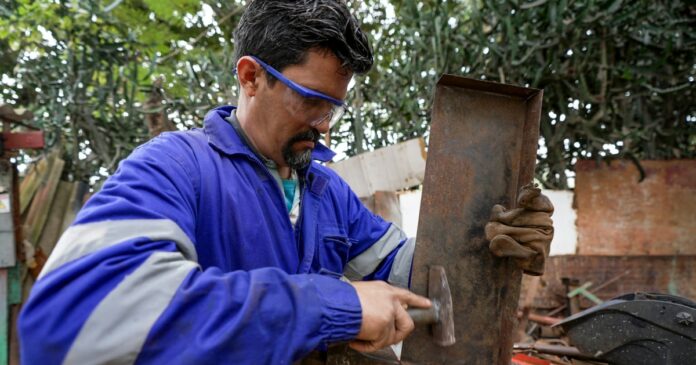HAVANA — Despite an economic crisis in communist-run Cuba that forces the island to subsist with widespread shortages in almost every category, in the past few years Yosvany García and his three assistants have been building trailers for motorcycles and cars and successfully selling them for a profit.
It’s not uncommon to spot his brand, YGC, around Havana.
In the neighborhood of Alamar, in the outskirts of the country’s capital city, Havana, García works with his three helpers — including his 78-year-old father. They work in a small yard with a dirt floor, three avocado trees and an ostensible slope.
Because there are shortages of virtually all products in Cuba, García depends on occasional vendors and scrap metal he finds in landfills to build the trailers.
He begins each creation with a computer design, but what comes afterward is arduous. He and his workers organize a production line in the backyard. Using scrap metal and mostly hand tools, each worker is responsible for a different part of the production including cutting metal parts, shaping them, sanding them and welding them.
García showed how, when he couldn’t get a single metal sheet that was long enough to make up a seamless side of a trailer, he puts two smaller sheets side by side onto a material. Then, “with caulk, I seal the union so I don’t have any water leaking through,” he said.
His final products pass the technical tests required for similar products that come from well-known manufacturers, according to García.
There’s an added benefit to that — García calculates he’s helped rid the city of some 2.5 tons of metal by recycling them for trailer parts.
He continues attracting clients because his prices are several thousands of dollars below the market value of trailers imported from overseas.
So far, he has built over 30 trailers that are used for motorcycles and cars.
“These are all my original designs; I find a way of getting my lines out, from the smallest trailer which is the Colibrí for motorcycles,” he said, to the bigger one for cars.

García’s business is a testament to the willingness of ordinary Cubans to develop products despite hard economic conditions and supply shortages. Cuba has been under tough U.S. economic sanctions for decades. That, coupled with a poorly managed, centrally planned economy, has left the island’s economy crippled with shortages, inflation and blackouts.
Since Cuba in 2021 allowed the creation of small and medium-sized enterprises (SMEs), often called mipymes in Spanish, Cubans have taken advantage and opened over 10,200 private businesses. The private sector, by some estimates, has replaced the state as the largest employer. But business owners still face challenges from the Cuban and U.S. governments.
García, 44, a former lathe operator, launched his trailer business in 2021 but has not registered it as a mipyme because he doesn’t have enough workers or output. Instead, he is registered as a “cuentapropista,” which refers to someone who works on his own. It was a term used by the Cuban government to refer to private entrepreneurs in the 1990s — when the concept of a private sector was first introduced after decades of total state control.
In order to get started, García sold some modest possessions and, with a handful of pesos, opened his open-air, tropical workshop.
Operating a business is challenging because of Cuban and U.S. regulations. Cuba limits the growth of businesses through regulations, like limiting companies to 100 employees and not allowing an individual to open more than one company.
In December, the government warned that it would review everything related to the private sector in order to correct “distortions” and stated it would create an institution to control this activity, though President Miguel Diaz Canel assured the public there was no crusade against “these nonstate economic actors.”
But small entrepreneurs also face hurdles navigating the world of U.S. sanctions. The Biden administration has not taken steps to allow Cuban entrepreneurs to open accounts in American banks after rumors swirled last fall they would.
“What Cuba does have, in overabundance, are eager, young and well-educated men and women who are resilient, scrappy and willing to take business risks if given the opportunity,” said Gustavo Arnavat, a former U.S. government official who founded the “Cuba Foundation,” a nonprofit that promotes the development of Cuba’s private sector through philanthropy.

According to Arnavat, Cubans like García are proof of their choice for private initiative. He believes that it would be in the best interests of the U.S. to contribute to investments that foster Cuba’s emerging private sector.
“We are not seizing the opportunity to be part of what is happening,” Arnavat said.
Despite the challenges, García is pushing through.
From the humble yard-turned-trailer factory, nothing seems to divert the Cuban entrepreneur from his dreams to create his own private business.
“With this company I will carry out all my dreams and projects as an entrepreneur,” he told NBC News on a recent sunny afternoon in his backyard.
For more from NBC Latino, sign up for our weekly newsletter.


